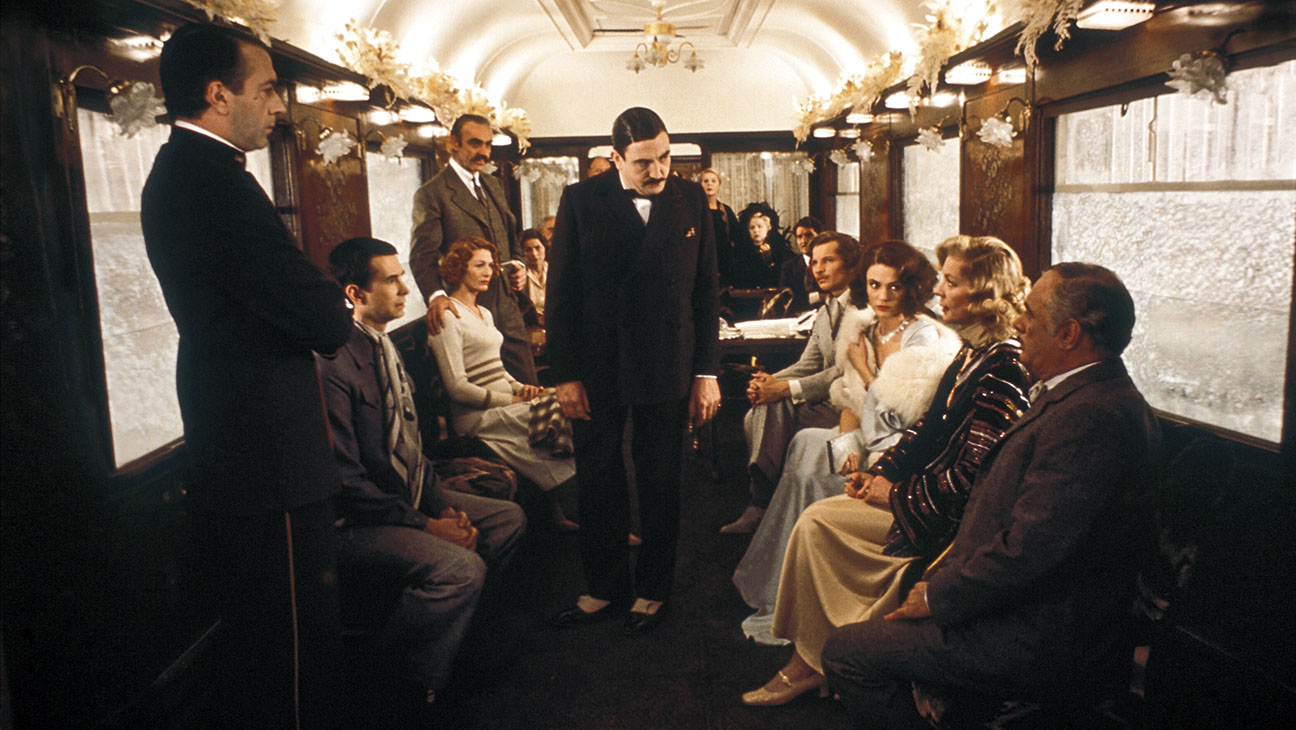I must’ve seen this movie four, five times when it first came out, when matinees were cheap, and what kept calling me back—besides the lovely, lush, immersive experience of just sinking back into an engaging and sensually-satisfying film in an air-conditioned theater in the middle of smelly, sticky, hot Manhattan—was, of course, the music. I really, really dug the score, just like I really dug the score of Walton (mostly)’s Battle of Britain (@1:20), a few years earlier, and went back matinees to go hear it again and again. Which doesn’t mean I like all of Richard Rodney Bennett; I think I’ve gone to almost every other movie he did a score to and can’t remember the music to any of them.
But this one I could whistle for years, decades, afterwards, and the only thing that brought it back to mind recently was—yes! yes!—falling in love with my bonny conductor John Wilson. Because of his association with Bennett, you see. Oh, they owned a house together or some such relationship [download PDF of Feb 2020 issue of Gramophone here], but that’s not what I’m talking about. Back when John was 28, he and Bennett—and The John Wilson Orchestra!!!—got together to record, as I mentioned in an earlier posting, an abomination called Orchestral Jazz. So I’m figuring that anything my bonny lad knows about jazz has to’ve come from this guy, and the trouble is, I really can’t find anything that would lead me to believe Bennett knew anything at all about jazz, except that he once partnered with jazz singer Claire Martin, and she’s the real thing.
 Directed by Sidney Lumet, whose first film was about another dozen people meting out justice, 12 Angry Men (United Artists, 1957). Above Jean-Pierre Cassel: “The Orient Express”, for which the composer heavily cribbed from Ravel’s “La valse”. Composer Richard Rodney Bennett on piano, Marcus Dods conducting the Orchestra of the Royal Opera House, 1974.
Directed by Sidney Lumet, whose first film was about another dozen people meting out justice, 12 Angry Men (United Artists, 1957). Above Jean-Pierre Cassel: “The Orient Express”, for which the composer heavily cribbed from Ravel’s “La valse”. Composer Richard Rodney Bennett on piano, Marcus Dods conducting the Orchestra of the Royal Opera House, 1974.
But when it comes to purely orchestral music, Bennett shows that he knows a thing or two, Royal Academy graduate that he is. I’m glad, because his complete score for the film Murder on the Orient Express (Paramount, 1974) is probably the last example of a type of music they call over there English Light Music, which flourished on and off for about a hundred years since the 1870s, and is defined by easily accessible melodies and lush, decorative orchestration. In other words, music that’s delicious to hear and easy to digest. And while Murder has slightly campy touches, Bennett essentially knew who his audience was, and what they wanted.
- “The Story So Far, with Conductor John Wilson”
- “The Story So Far; Or, Conductor John Wilson—His Limits”
- “Cantara Christopher Gives Her Beloved Conductor John Wilson Crib Notes on Todd Field’s Screen Masterpiece, Tár: Love, Teshuvah, and Filipinos Will Save Western Music”
FULL DRESS // A gifted mesmerist—a sinister composer—a naive young conductor from the north…inspired by an episode from the life of Rachmaninoff // DOWNLOAD FREE BOOK POSTER
8 thoughts on “Murder On the Orient Express by Richard Rodney Bennett, Played by the Orchestra of the Royal Opera House, with the Composer on Piano, and Conducted by Marcus Dods (1974)”